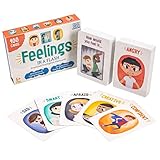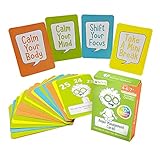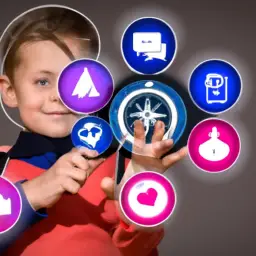Do you want your child to succeed in life? If so, it’s important to encourage them to develop grit and emotional intelligence. While these traits may not be as tangible as academic achievements or athletic prowess, they are crucial for long-term success and happiness.
In this article, we’ll explore six compelling reasons why your child needs to develop grit and emotional intelligence, and how you can help them do so.
First, let’s define what we mean by grit and emotional intelligence. Grit is the ability to persevere in the face of adversity, to stick with a task even when it’s difficult or uncomfortable. Emotional intelligence, on the other hand, refers to the ability to recognize and manage one’s own emotions, as well as the emotions of others.
Both of these traits are essential for navigating the challenges of life, whether it’s in school, at work, or in personal relationships. So, why are they so important for your child to develop? Let’s take a closer look.
Key Takeaways
- Developing grit and emotional intelligence is crucial for long-term success and happiness, as it helps children handle stress, bounce back from failure, and maintain positive relationships with others.
- Strategies for teaching children grit and emotional intelligence include modeling these traits, encouraging them to take on challenges, and helping them manage their emotions in healthy ways, which can lead to improved academic performance and overall emotional well-being.
- Empathy is a crucial aspect of emotional intelligence, and developing conflict resolution and effective communication skills can lead to stronger relationships, reduced bullying, and greater social awareness and understanding.
- Prioritizing grit and emotional intelligence can lead to improved mental health, increased career success, and the development of resilience and determination, as well as the ability to handle stress and adversity, recognize strengths and weaknesses, and adapt to change.
Definition of Grit and Emotional Intelligence
You need to know what grit and emotional intelligence are, because they’ll help your child succeed in life!
Grit is the ability to persevere through challenges and setbacks, and to maintain a long-term goal despite obstacles. Emotional intelligence, on the other hand, is the ability to understand and manage one’s own emotions, as well as to empathize and communicate effectively with others.
The benefits of grit and emotional intelligence in childhood development are numerous. Children who possess these traits are better equipped to handle stress, to bounce back from failure, and to maintain positive relationships with others.
Strategies for teaching grit and emotional intelligence to children include modeling these traits yourself, encouraging your child to take on challenges and persevere through difficulties, and helping them to identify and manage their emotions in healthy ways. By cultivating grit and emotional intelligence in your child, you’re setting them up for success in all areas of their lives.
Improved Academic Performance
When your child develops grit and emotional intelligence, they’ll find that their academic performance improves significantly. This is because grit and emotional intelligence help to build study habits and self-motivation, two essential qualities for success in school.
Here are three ways that these traits can positively impact your child’s grades:
-
Grit encourages persistence: When your child has grit, they’re more likely to persevere through tough academic challenges. This means that instead of giving up when they encounter a difficult problem, they’ll keep trying until they find a solution. This persistence can lead to better grades because it helps your child to fully understand and master the material.
-
Emotional intelligence promotes effective communication: Emotional intelligence helps your child to understand and manage their own emotions, as well as those of others. This can lead to more effective communication with teachers and classmates, which can improve their understanding of the material and increase their engagement in class.
-
Self-motivation leads to proactive learning: When your child is self-motivated, they take charge of their own learning. They’re more likely to seek out resources and information to help them understand the material, rather than waiting for someone else to provide it. This proactive approach to learning can lead to better grades and a deeper understanding of the material.
Better Social Skills
When it comes to developing better social skills, empathy should be at the top of your list. By teaching your child how to understand and relate to others’ emotions, they can become more compassionate and caring individuals.
Conflict resolution is another crucial aspect of social skills. By learning how to handle disagreements in a respectful and productive manner, your child can avoid damaging relationships and build stronger connections with others.
Finally, communication is key to any successful relationship. By teaching your child how to express themselves clearly and listen actively, they can navigate social situations with confidence and ease.
Empathy
As a parent, it’s important to acknowledge that developing empathy in your child is crucial for their overall emotional intelligence. Empathy is the ability to understand and share the feelings of others, and it’s a skill that can be learned and improved over time.
By teaching your child empathy, you are helping them to become more compassionate, kind, and understanding human beings. Here are some compelling reasons why your child needs to develop empathy:
- Empathy helps children build stronger relationships with others.
- Empathy reduces bullying and aggressive behavior.
- Empathy promotes greater social awareness and understanding.
To help your child develop empathy, you can engage in empathy exercises with them, such as role-playing scenarios where they take on the perspective of another person. Additionally, empathetic listening techniques can be used to teach your child to listen actively and respond with care and consideration to the feelings of others.
By prioritizing empathy in your child’s development, you are setting them up for a lifetime of positive social interactions and emotional intelligence.
Conflict Resolution
To effectively resolve conflicts, you can utilize active listening techniques and communicate your needs and feelings clearly and respectfully. This involves being present and fully engaged in the conversation, acknowledging the other person’s perspective, and avoiding interrupting or getting defensive. By actively listening, you can gain a better understanding of the root of the conflict and work towards finding a mutually beneficial resolution.
To further enhance your conflict resolution skills, it is important to develop problem solving skills and emotional regulation. Problem solving skills involve being able to identify and evaluate different solutions to a problem, while emotional regulation involves being able to manage your own emotions and reactions in a conflict. Self awareness is also key in conflict resolution, as it allows you to recognize your own biases and triggers, and work towards addressing them. By cultivating these skills, you can become more adept at resolving conflicts in a respectful, constructive manner.
| Effective Communication | Problem Solving Skills | Emotional Regulation |
|---|---|---|
| Active listening | Identifying options | Managing emotions |
| Clear and respectful communication | Evaluating solutions | Recognizing triggers |
| Acknowledging other perspectives | Making decisions | Practicing self-awareness |
Communication
Improving your communication skills is essential for effectively resolving conflicts and building positive relationships. One of the most important aspects of effective communication is active listening.
Active listening involves not only hearing the words that someone is saying, but also paying attention to their tone of voice, body language, and the underlying emotions that they may be expressing. By actively listening to others, you can better understand their perspective and avoid misunderstandings that can lead to conflict.
In addition to active listening, communicating effectively also involves being able to express your own thoughts and feelings clearly and respectfully. This means being able to communicate in a way that is assertive without being aggressive, and being able to express yourself in a way that is clear and concise.
By developing these communication skills, you can not only resolve conflicts more effectively, but also build stronger, more positive relationships with others.
Improved Mental Health
You’ll find that prioritizing your child’s development of grit and emotional intelligence will lead to a happier, healthier mental state. Mental health benefits are numerous when individuals develop resilience training and emotional intelligence.
With the rise of mental health issues in young people, it’s more important than ever to teach our children how to cope with stressors in a healthy way. Here are some ways prioritizing grit and emotional intelligence can improve your child’s mental health:
- Better stress management
- Increased self-awareness
- Improved decision-making skills
- Greater ability to handle challenges
- Increased overall happiness
By developing these skills, your child will be better equipped to navigate the ups and downs of life. They’ll also be more likely to seek help when needed and maintain a positive outlook on life.
It’s important to give children the tools they need to succeed in all areas of life, including mental health.
Increased Career Success
You need to understand that developing grit and emotional intelligence can greatly increase your chances of career success.
One reason for this is that it helps you develop strong leadership skills, which are highly valued in many professions.
Additionally, grit and emotional intelligence enable you to adapt to changing circumstances and persevere through challenges, demonstrating a strong work ethic that employers look for in their employees.
Leadership
Leaders who possess grit and emotional intelligence are able to inspire and motivate their team to achieve their goals, creating a positive and successful work environment.
Different leadership styles require different levels of grit and emotional intelligence. For instance, nurturing leadership skills require leaders to be empathetic and emotionally intelligent. They should be able to understand and respond to the needs of their team members, fostering a sense of belongingness and inclusivity. This, in turn, creates a team that is more productive and efficient, as they are able to work in an environment that values their contributions and supports their growth.
In addition, leaders with grit and emotional intelligence are better equipped to handle challenges and setbacks. They are able to remain calm under pressure, think critically, and make informed decisions. This inspires their team members to do the same, creating a culture of resilience and adaptability.
Such leaders are also able to provide constructive feedback, helping their team members to learn and grow from their mistakes. As a result, the team becomes more confident, motivated, and successful, achieving their goals and exceeding expectations.
Adaptability
Being adaptable is crucial in today’s fast-paced and ever-changing world, as it allows you to stay ahead of the game and overcome any obstacle that comes your way. Here are some benefits of adaptability that you should know about:
-
Resilience vs. rigidity: Being adaptable means having the ability to bounce back from setbacks and challenges. In contrast, being rigid means being inflexible and unable to adjust when things don’t go as planned. By cultivating adaptability, your child will be more resilient and better equipped to handle whatever life throws their way.
-
Coping with change: Change is inevitable, and it can be difficult for some people to handle. However, adaptability allows your child to be more comfortable with change and uncertainty. They’ll be able to adjust to new situations quickly and with ease, which will make them more confident and capable.
-
Overcoming obstacles: Life is full of obstacles, and being adaptable means being able to find creative solutions to problems. Instead of getting stuck and feeling defeated, your child will be able to think on their feet and come up with new approaches to overcoming challenges.
Overall, developing adaptability is an important skill for your child to have. It’ll help them be more resilient, cope with change and uncertainty, and overcome obstacles. Encourage your child to embrace new experiences and challenges, and to always be open to learning and growing.
Work Ethic
If you want to succeed in the workplace, it’s important to have a strong work ethic. This means being reliable, showing up on time, and putting in effort to complete tasks to the best of your ability. As a parent, you can help your child develop a strong work ethic by modeling it yourself and setting expectations for them.
However, it’s also important to balance work ethic with self care and rest. Teaching your child to prioritize their well-being and recognize when they need a break can prevent burnout and promote long-term success. Encourage them to take breaks when needed and model taking care of yourself as well. By teaching your child to balance hard work with self care, you can help them develop a healthy and sustainable work ethic.
| Importance of modeling | Setting expectations for work ethic |
|---|---|
| Children learn by example, so modeling a strong work ethic can teach them its importance. | Setting clear expectations for your child’s behavior in regards to work ethic can help them understand what is expected of them. |
| Leading by example can also help your child develop good habits and behaviors. | Setting goals with your child can help them see the importance of putting in effort to achieve success. |
| Modeling self care and rest can also teach your child the importance of balancing hard work with taking care of oneself. | Encouraging your child to take breaks and prioritize their well-being can prevent burnout and promote long-term success. |
| Consistency in enforcing expectations can help your child develop habits that will benefit them in the long run. | |
| Being supportive and offering constructive feedback can help your child improve their work ethic and continue to grow. |
Long-Term Benefits
As you develop grit and emotional intelligence, you’ll notice a sense of resilience and determination that will carry you through life’s toughest challenges, like a ship weathering a stormy sea.
Here are four long-term benefits that will come with the development of grit and emotional intelligence:
-
You’ll be better equipped to handle stress and adversity, which will make you more successful in your career and personal life.
-
You’ll be more empathetic and able to connect with others on a deeper level, which will help you build stronger relationships.
-
You’ll be more self-aware and able to recognize your own strengths and weaknesses, which will help you make better decisions and achieve your goals.
-
You’ll be more adaptable and able to navigate change, which will make you more resilient in the face of challenges.
These benefits will serve you well into adulthood, and they are the result of the importance of role models who demonstrate grit and emotional intelligence. So keep working on developing these qualities and watch as they help you succeed in all aspects of your life.
Frequently Asked Questions
What are some practical ways to help children develop grit and emotional intelligence?
To help your child develop grit and emotional intelligence, there are several age-appropriate activities you can incorporate into their daily routine.
Encourage them to take on challenges that may be difficult but not impossible, and praise their efforts instead of just their achievements.
Role modeling is also crucial – show your child how to handle stress and setbacks by remaining calm and positive.
Encourage them to express their emotions and help them develop problem-solving skills.
Additionally, teach your child to have empathy and understanding towards others, and encourage them to work collaboratively with their peers.
By instilling these qualities in your child, you can help them develop the resilience and emotional intelligence they need to succeed in life.
How can parents and caregivers recognize signs of emotional intelligence and grit in their children?
Recognizing signs of emotional intelligence and grit in your child is a crucial step in supporting their growth. You can look for indicators such as their ability to regulate their emotions, show empathy towards others, and persevere through challenges.
If your child is able to handle criticism well and learn from their mistakes, that’s also a sign of grit. Additionally, you may notice your child displaying a sense of optimism and self-motivation in their pursuits.
By recognizing and nurturing these qualities, you can help your child further develop their emotional intelligence and grit. This will ultimately lead to greater success in their personal and professional lives.
Can children develop grit and emotional intelligence later in life, or is it something that must be developed in childhood?
Yes, children can develop grit and emotional intelligence later in life, but the importance of early development can’t be overstated.
The impact of environment plays a significant role in shaping a child’s personality and behavior. Children who grow up in nurturing, supportive environments are more likely to develop grit and emotional intelligence.
On the other hand, children who experience neglect, abuse, or other adverse childhood experiences may struggle with these traits later in life. While it’s never too late to develop grit and emotional intelligence, it’s much easier to do so during childhood when the brain is still developing and more malleable.
Parents and caregivers can help by providing opportunities for their children to learn and practice these skills, modeling positive behaviors themselves, and creating a safe and supportive environment for their children to grow and thrive.
Are there any potential drawbacks or negative consequences to emphasizing grit and emotional intelligence in children?
When it comes to emphasizing grit and emotional intelligence in children, there are potential drawbacks and criticisms to consider. Some argue that placing too much emphasis on these traits may lead to an unhealthy focus on achievement and success at the expense of other important aspects of development.
It’s important to strike a balance and prioritize holistic development that includes social skills, creativity, and other areas of growth. However, this doesn’t mean that grit and emotional intelligence aren’t important. Developing these traits can help children become more resilient and better able to navigate challenges throughout their lives.
It’s all about finding the right balance and not losing sight of the bigger picture.
How do cultural and societal factors influence the development of grit and emotional intelligence in children?
As a parent, it’s important to understand how cultural and societal factors can influence the development of grit and emotional intelligence in your child.
Parental involvement plays a significant role in shaping your child’s emotional intelligence, as children learn from their parents’ behaviors and attitudes.
Educational systems also play a crucial role, as they provide opportunities for children to develop grit through challenging academic and extracurricular activities.
However, cultural factors such as societal expectations of success and achievement can also impact a child’s development of grit and emotional intelligence.
It’s important to recognize these influences and actively work to create a supportive environment that fosters the development of these important traits in your child.
Conclusion
So, now you know why developing grit and emotional intelligence is important for your child. By nurturing these qualities, you’re not only helping them academically but also socially and emotionally.
They’ll be better equipped to handle challenges, setbacks, and failures in life, and emerge stronger and more resilient. As a parent, you have a crucial role in shaping your child’s character and future.
By providing them with opportunities to develop grit and emotional intelligence, you can help them build a foundation for success and happiness in all aspects of life. So, go ahead and encourage your child to take on challenges, build relationships with others, and learn from their mistakes.
They’ll thank you for it in the long run!

















































































































